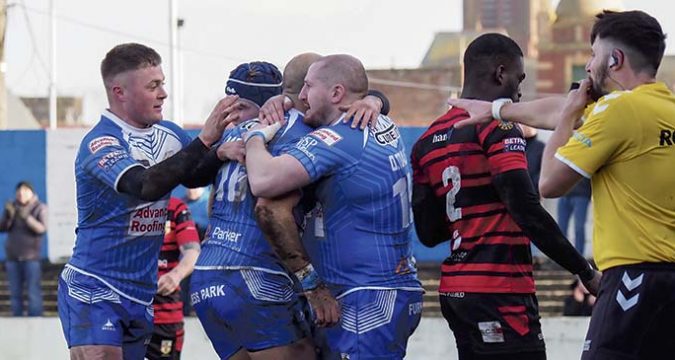 As a man who has carved a successful career in the world of gambling, Steve Neale knows a calculated risk when he sees one. But even by his own standards, the Barrow Raiders Chairman's decision to launch aggressive cut-price initiatives that essentially allow everyone to watch the club for free in 2020 is bold to say the least.
It is a drive to
As a man who has carved a successful career in the world of gambling, Steve Neale knows a calculated risk when he sees one. But even by his own standards, the Barrow Raiders Chairman's decision to launch aggressive cut-price initiatives that essentially allow everyone to watch the club for free in 2020 is bold to say the least.
It is a drive to Barrow chairman Steve Neale on cut-price ticket initiatives, the health of the sport outside Super League the future of Cumbrian rugby
 As a man who has carved a successful career in the world of gambling, Steve Neale knows a calculated risk when he sees one. But even by his own standards, the Barrow Raiders Chairman's decision to launch aggressive cut-price initiatives that essentially allow everyone to watch the club for free in 2020 is bold to say the least.
It is a drive to
As a man who has carved a successful career in the world of gambling, Steve Neale knows a calculated risk when he sees one. But even by his own standards, the Barrow Raiders Chairman's decision to launch aggressive cut-price initiatives that essentially allow everyone to watch the club for free in 2020 is bold to say the least.
It is a drive to 